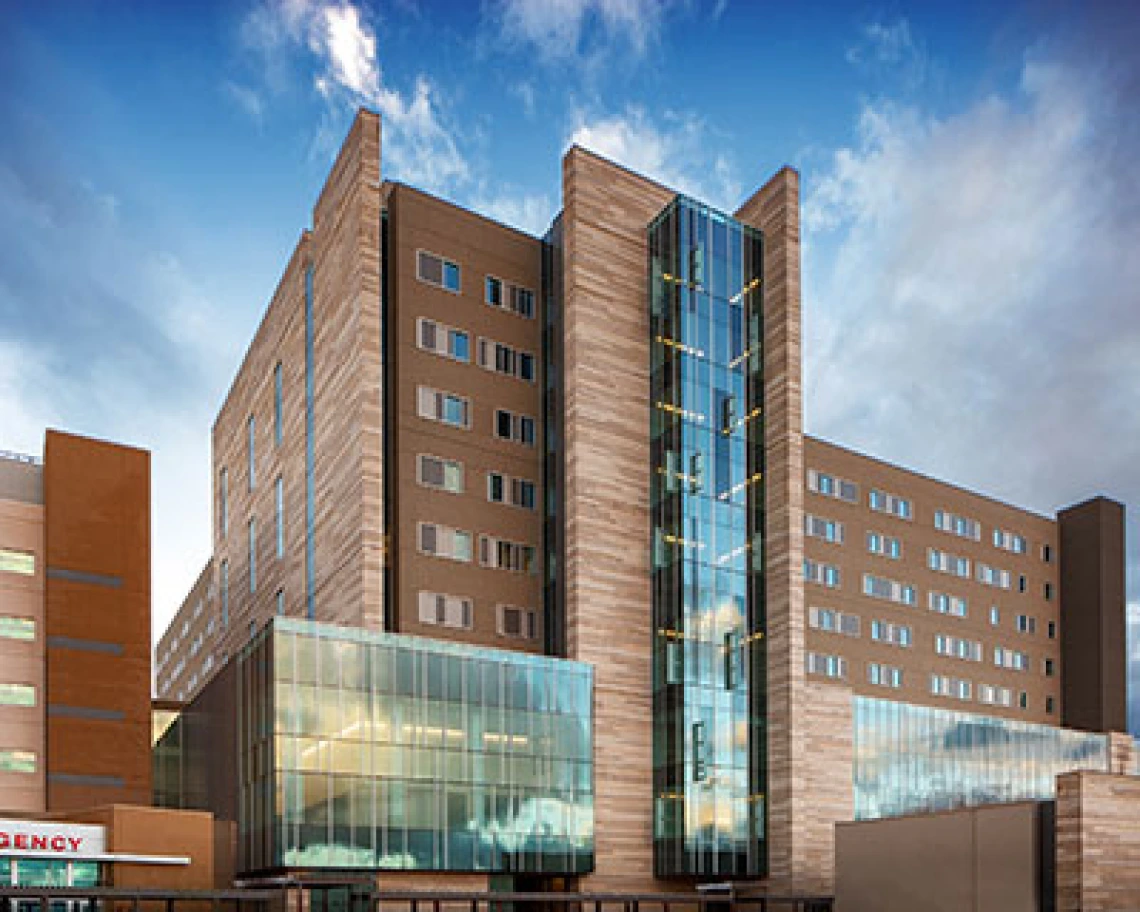Banner – University Medical Center Tucson earns comprehensive stroke center status
Banner – University Medical Center Tucson is the first certified comprehensive stroke center in Tucson.


Banner – University Medical Center Tucson is the first certified comprehensive stroke center in southern Arizona.
Banner – University Medical Center Tucson (B – UMCT) now offers the first Joint Commission certified comprehensive stroke center in Tucson and joins Banner – University Medical Center Phoenix as the second Joint Commission comprehensive stroke center in the state.
Developed in collaboration with the American Heart Association and the American Stroke Association, the certification recognizes the center’s ability to treat the most complex stroke patients 24 hours a day, seven days a week.
As a comprehensive stroke center, B – UMCT brings together experts from Banner – University Medicine and the University of Arizona Health Sciences to provide specialized cerebrovascular neurosurgeons, multidisciplinary trained physicians, nurses and staff, neuro-intensive care units, advanced imaging, post-hospital care and access to stroke research and clinical trials.
“As the only academic medical center in Southern Arizona, we have assembled a multidisciplinary team to provide state-of-the-art management of patients with stroke and cerebrovascular diseases,” said Sarah Frost, chief executive officer of Banner – University Medical Centers Tucson and South. “We are pleased to provide Southern Arizona with the next generation of stroke care to significantly improve outcomes for stoke patients.”
A stroke, sometimes called a brain attack, occurs when a clot blocks blood supply to the brain or when a blood vessel in the brain bursts. Stroke kills about 140,000 Americans each year; every 4 minutes someone dies of stroke.
“Our multidisciplinary team has earned this certification through its commitment to provide age-appropriate, culturally sensitive, evidence-based specialized stroke care. We are thrilled to be able to deliver the highest quality care to Southern Arizona, 24 hours a day, seven days a week,” said Mohammad El-Ghanem, MD, Banner – University Medicine neuroendovascular physician, co-medical director of B – UMCT Stroke Center and UA assistant professor of neurology and medical imaging. Dr. El-Ghanem, a member of the UA Sarver Heart Center, specializes in brain and spinal cord conditions and the treatment and rehabilitation of acute stroke.
The comprehensive stroke certification recognizes hospitals that meet standards to treat the most complex stroke cases and who develop a formal referral network to ensure the most complicated cases are treated by the centers equipped to provide this specialized care, ultimately leading to better outcomes.
Specifically, the comprehensive stroke certification recognizes hospitals that meet rigorous standards of performing endovascular thrombectomy (EVT), a surgical procedure to remove a vein clot, endovascular coiling and microsurgical clipping. The certification requires that an acute stroke team, neurosurgical services, and dedicated intensive care beds are available 24/7 for acute ischemic stroke patients and the team can be at a bedside within 15 minutes, while being able to support two patients simultaneously.
“Our goal is to save lives and improve outcomes for stoke patients in Southern Arizona. As part of that commitment, we also provide stroke care education to other hospitals and health-care facilities, health-care professionals and the community, as well as to patients, family members and medical students,” said Chelsea S. Kidwell, MD, Banner – University Medicine neurologist, medical director of B – UMCT Stroke Center, UA professor of neurology and medical imaging and the vice chair of neurology research. She also is a member of the UA Sarver Heart Center and the UA BIO5 Institute. Her specialty is stroke and cerebrovascular disease.
Please visit the Banner neurosciences and stroke care website to learn more, or call Bridget B. Garza, RN, MSN, CEN, stroke program manager at Banner – UMCT, 520-694-2584. Visit UA Sarver Heart Center’s prevention pages to learn about stroke symptoms.
About Banner – University Medical Center Tucson and South
Banner – University Medical Center Tucson and Banner – University Medical Center South are part of Banner – University Medicine, a premier academic medical network. These institutions are academic medical centers for the University of Arizona College of Medicine – Tucson. Included on the two campuses are Banner Children’s Diamond Children's Medical Center and many clinics. The two academic medical centers are part of Arizona-based Banner Health, one of the largest nonprofit health care systems in the country. Banner Health is in six states: Arizona, California, Colorado, Nebraska, Nevada and Wyoming. For more information, please visit: www.bannerhealth.com/universitytucson or www.bannerhealth.com/universitysouth
About the University of Arizona Health Sciences
The University of Arizona Health Sciences is the statewide leader in biomedical research and health professions training. The UA Health Sciences includes the UA Colleges of Medicine (Tucson and Phoenix), Nursing, Pharmacy, and the Mel and Enid Zuckerman College of Public Health, with main campus locations in Tucson and the growing Phoenix Biomedical Campus in downtown Phoenix. From these vantage points, the UA Health Sciences reaches across the state of Arizona and the greater Southwest to provide cutting-edge health education, research, patient care and community outreach services. A major economic engine, the UA Health Sciences employs nearly 5,000 people, has approximately 900 faculty members and garners $200 million in research grants and contracts annually. For more information: uahs.arizona.edu (Follow us: Facebook | Twitter | YouTube | LinkedIn | Instagram)

